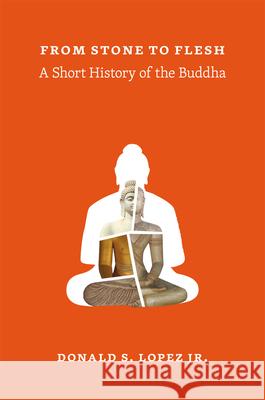From Stone to Flesh: A Short History of the Buddha » książka
From Stone to Flesh: A Short History of the Buddha
ISBN-13: 9780226333236 / Angielski / Miękka / 2016 / 304 str.
From Stone to Flesh: A Short History of the Buddha
ISBN-13: 9780226333236 / Angielski / Miękka / 2016 / 304 str.
(netto: 88,38 VAT: 5%)
Najniższa cena z 30 dni: 91,67
ok. 30 dni roboczych.
Darmowa dostawa!
We have come to admire Buddhism for being profound but accessible, as much a lifestyle as a religion. The credit for creating Buddhism goes to the Buddha, a figure widely respected across the Western world for his philosophical insight, his teachings of nonviolence, and his practice of meditation. But who was this Buddha, and how did he become the Buddha we know and love today? Leading historian of Buddhism Donald S. Lopez Jr. tells the story of how various idols carved in stone--variously named Beddou, Codam, Xaca, and Fo--became the man of flesh and blood that we know simply as the Buddha. He reveals that the positive view of the Buddha in Europe and America is rather recent, originating a little more than a hundred and fifty years ago. For centuries, the Buddha was condemned by Western writers as the most dangerous idol of the Orient. He was a demon, the murderer of his mother, a purveyor of idolatry. Lopez provides an engaging history of depictions of the Buddha from classical accounts and medieval stories to the testimonies of European travelers, diplomats, soldiers, and missionaries. He shows that centuries of hostility toward the Buddha changed dramatically in the nineteenth century, when the teachings of the Buddha, having disappeared from India by the fourteenth century, were read by European scholars newly proficient in Asian languages. At the same time, the traditional view of the Buddha persisted in Asia, where he was revered as much for his supernatural powers as for his philosophical insights. From Stone to Flesh follows the twists and turns of these Eastern and Western notions of the Buddha, leading finally to his triumph as the founder of a world religion.











